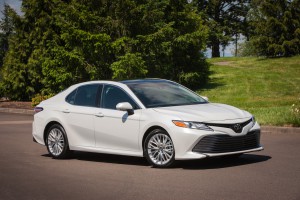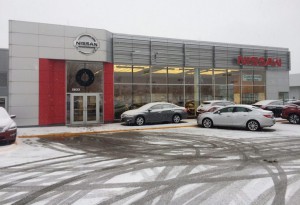After of drop sales in February of 2.8%, the auto industry is facing unsettled times during the next few months, analysts predict.
“February had a lot of good economic news to support a healthy vehicle market outlook, but that may not be coming to pass. The stock market has had a tremendous ride since the start of the year and consumer confidence, which took a tumble in January, has regained much of its decline,” observed Charlie Chesbrough, Cox Automotive senior economist.
“With January’s government shutdown and record-breaking sub-zero temperatures in the rearview mirror, we expected a general upward lift in February,” he said.
However, that hasn’t happened and February sales reports indicated a much bigger story, he said. “The sales pace has finally shifted into a lower gear than the mid-17 million rate with which we finished 2018,” he said.
(Wintry weather drives auto sales down in February. Click Here for the story.)
Meanwhile, Edmunds, the sales advisory website, reported this week that a record number of vehicles are coming off lease in the next several months.

Strong economic fundamentals should have overcome winter weather, as they did in January, to drive new car sales in February.
“The record 4.3 million Americans who will be turning in leased vehicles this year will be in for sticker shock when they return to the dealership,” according to new analysis from Edmunds.
Consumers who are leasing some of the most popular vehicles and want to lease the same vehicle again will find themselves paying as much as 26% more than they did in 2016, and more than $1,600 during the life of the lease on average.
Edmunds said record vehicle prices, weakening residuals and rising interest rates are mostly to blame for the increases, which analysts say are substantial enough to potentially price many shoppers out of the new vehicle market.
“Three years ago, leasing was an affordable option for almost anyone considering a new vehicle, but the market has made a pretty dramatic shift since then,” said Jessica Caldwell, executive director of industry analysis for Edmunds.
(Click Here for more about analysts forecasting strong 2019 auto sales.)
“Demand for sedans has fallen off so sharply that they don’t hold their residual value like they used to, making lease payments much more expensive,” Caldwell said.

Leases on sedans aren't the deal they used to be due to falling residuals. The Camry is a prime example.
Edmunds experts analyzed the most popular vehicles leased in the U.S. to reveal which ones have the most pronounced hikes in lease costs now compared to 2016, looking at identical models and trim levels. The Toyota Camry SE had the biggest spike, costing $2,834 more on average over the course of a 36-month lease ― a 26% increase.
Edmunds analysts say these price increases could also be another nail in the coffin of the sedan market, as the price gap between SUVs and cars has narrowed considerably since 2016 on some of the most popular vehicles.
Interest rates on new vehicles are expected to hit their highest level since 2009 in February, according to Edmunds. The annual percentage rate on new financed vehicles averaged 6.26% in February, compared to 5.19% last year and 4.56% five years ago
One positive sign, however, is that 30- and 60-day delinquencies remained relatively stable in the fourth quarter of 2018, according to new data from Experian.
(Auto sales stabilize in January despite polar weather. Click Here for the story.)
Experian also said the average loan amount for a new vehicle was $31,722 in the fourth quarter of 2018, up $623 from a year ago. The average monthly payment for a new vehicle was $545 in Q4 2018, up $30 from the previous year.

